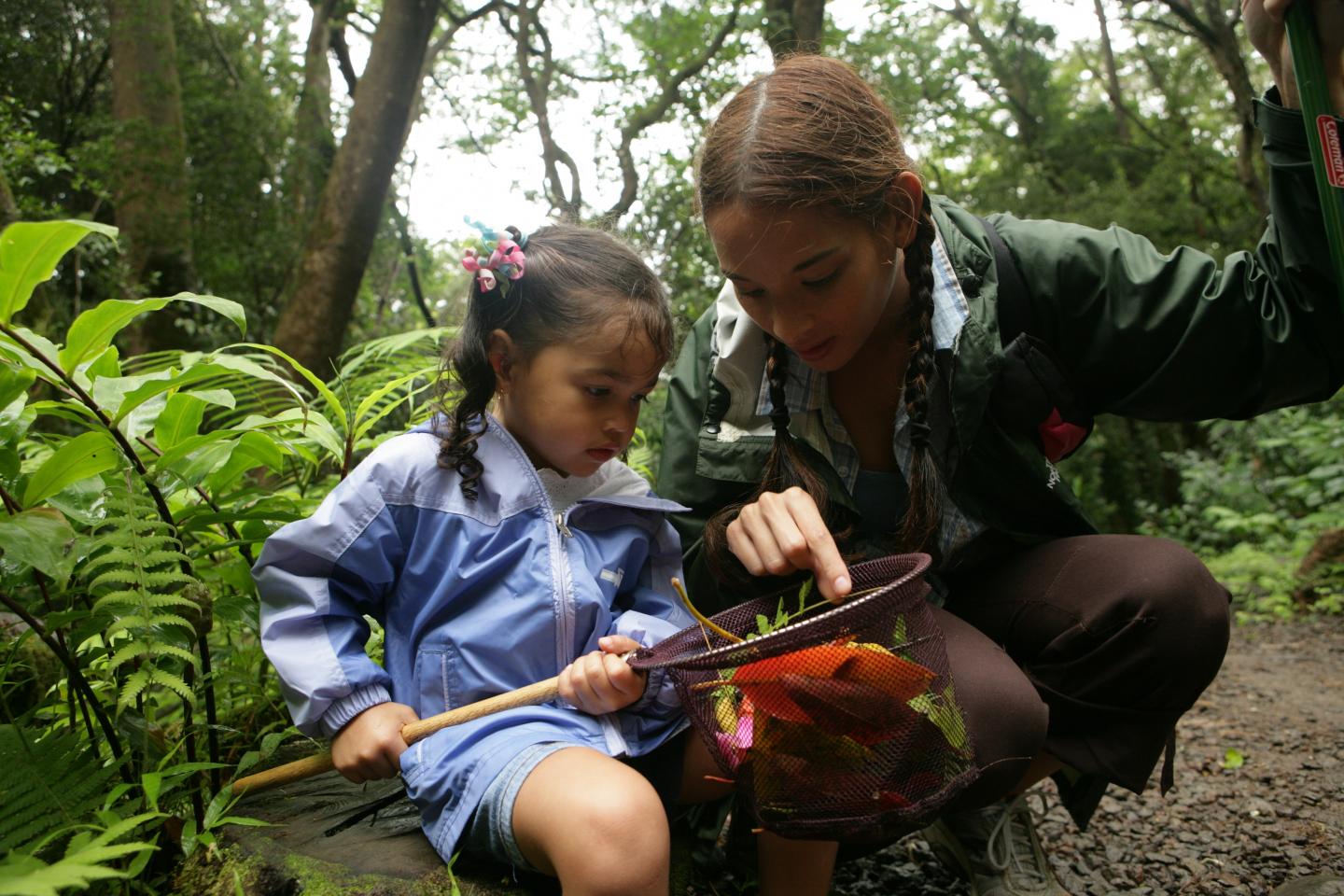Critical review finds cause-and-effect relationship

Credit: University of Illinois
URBANA, Ill. – Spending time in nature boosts children’s academic achievement and healthy development, concludes a new analysis examining hundreds of studies.
Ming Kuo, associate professor in the Department of Natural Resources and Environmental Sciences at the University of Illinois and lead author on the Frontiers in Psychology study, says she expected the critical review to lead to more questions than answers. Instead, all signs pointed to the same outcome: “It is time to take nature seriously as a resource for learning,” she says, “in fact, the trend of increasing indoor instruction in hopes of maximizing standardized test performance may be doing more harm than good.”
Kuo and her University of Minnesota co-authors found that nature boosts learning in eight distinct ways.
“We found strong evidence that time in nature has a rejuvenating effect on attention; relieves stress; boosts self-discipline; increases physical activity and fitness; and promotes student self-motivation, enjoyment, and engagement,” Kuo explains. “And all of these have been shown to improve learning.”
Moreover, nature creates a calmer, quieter, and safer setting for learning; fosters warmer, more cooperative relations among students; and affords more creative, more exploratory forms of play.
While none of these effects is entirely new, the analysis represents the first time all of the lines of evidence have been pulled together. Collectively, the findings make a much stronger case for the importance of time in nature. They also provide an explanation for something that has been puzzling scientists in the field – why even small doses of nature sometimes have surprisingly large effects.
The researchers say the key is seeing how these effects work together, in individual students and in classrooms.
“If something not only makes a student more attentive, but also less stressed and more interested, then you can see how it could have a large effect on their learning. Furthermore, if you put a bunch of kids in a classroom and they’re all attentive, absorbed, and interested, that sounds like a different classroom than one where they’re all stressed, agitated, not getting along, etc.,” says Michael Barnes, doctoral student at the University of Minnesota and co-author on the study. “So you can start to see how these large effects could make sense.”
These effects extend beyond academic achievement, according to the review. Time in nature appears to foster personal skills and qualities important for future success, and may play a critical role in helping children grow up to be environmental stewards.
“Report after report – from independent observers as well as participants themselves – indicate beneficial shifts in perseverance, problem solving, critical thinking, leadership, teamwork, and resilience. All of these line up with skills we know are important for kids’ ability to thrive in the 21st century,” says Catherine Jordan, associate professor at U of M and co-author on the study.
The analysis suggests multiple benefits of greening schoolyards and incorporating nature-based instruction in schools.
“Even small exposures to nature are beneficial. If you’re indoors, having a view of your yard as opposed to facing the wall, that makes a difference. At the same time, more is better. That’s one of the things that gives us more confidence that we’re seeing a real cause-and-effect relationship,” Kuo says. “The bigger the dose of nature we give a person, the bigger the effect we see in them.”
###
The article, “Do experiences with nature promote learning? Converging evidence of a cause-and-effect relationship,” is published in Frontiers in Psychology [DOI: 10.3389/fpsyg.2019.00305]. Authors include Ming Kuo, Michael Barnes, and Catherine Jordan. The work was supported by the National Science Foundation, as part of its funding for the Science of Nature-Based Learning Collaborative Research Network.
Media Contact
Lauren Quinn
[email protected]
Original Source
https:/
Related Journal Article
http://dx.



